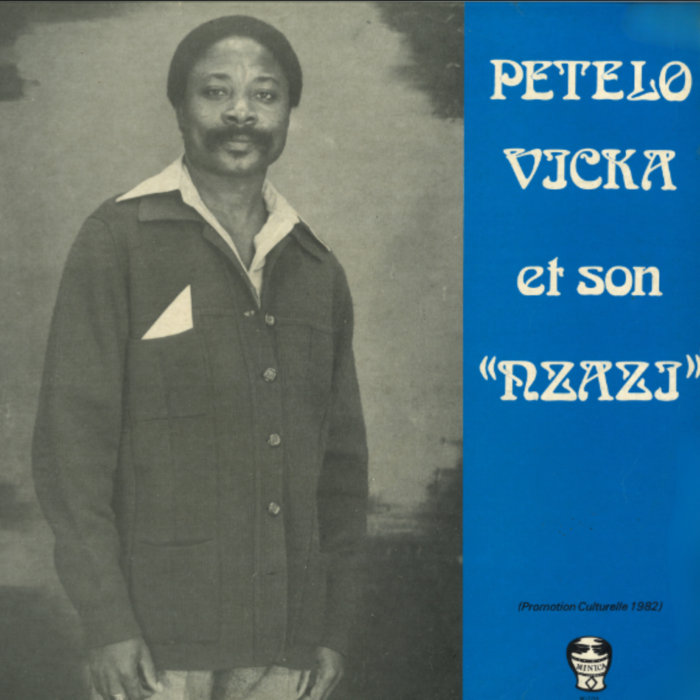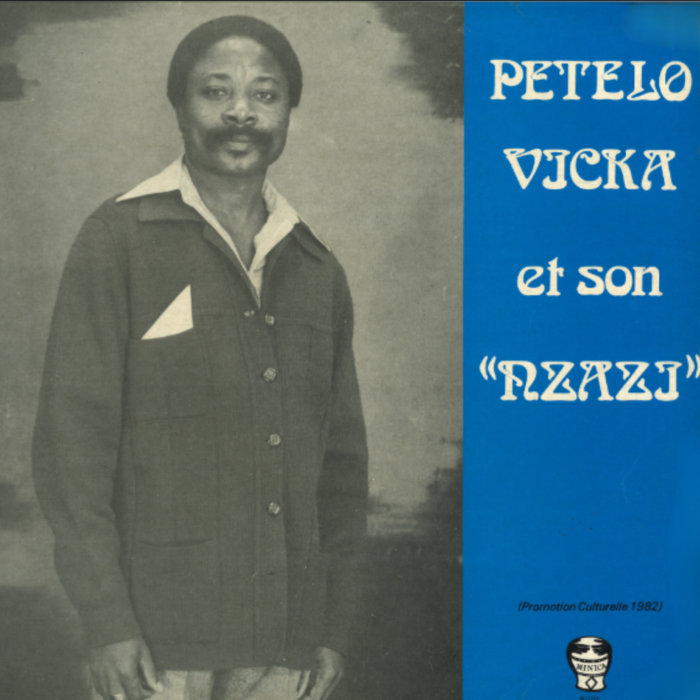
Nani – Petelo Vicka et son Nzazi
this blog is GROOVY – check out great Soul, Funk, Jazz, Hip Hop, Bass, Breaks , Reggae, House n many more TUNES
Ah, Rumba Congolaise! If there ever was a genre that captivates through its rhythm and melody, this is it. Born from the vibrant cultural tapestry of the Democratic Republic of the Congo (DRC), this music is more than just sound; it’s a feeling, an expression, a groove that gets into your bones.
Rumba has roots deep in African tradition. In fact, you could say it’s like that old comfy chair your grandma had—filled with stories and history. It began in the early 20th century when African rhythms collided with Latin influences brought by returning soldiers from World War II and Caribbean migrants.
Initially emerging in Kinshasa and surrounding areas, Congolese rumba drew inspiration from Cuban son music. Picture musicians blending local instruments like the ngoma (drum) with guitars strumming away those infectious melodies! By the 1940s and ’50s, rumba evolved into what we now recognize as Rumba Congolaise—a sophisticated blend full of life.
1950s Magic: The iconic band OK Jazz led by Franco Luambo Makiadi popularized rumba worldwide. Imagine dance floors packed with people moving their feet to catchy tunes while Franco crooned his heart out.
Golden Era: Throughout the 1960s and ’70s, bands like Tabu Ley Rochereau’s Afrisa International made waves not just across Africa but globally! They were spreading joy faster than rumors at a family reunion.
The essence of Rumba Congolaise lies in its instrumentation:
With these tools combined, you get grooves so smooth they’ll make baby oil jealous!
Now let’s talk about dancing! If you’ve never tried dancing to rumba before – boy oh boy – you’re missing out on some serious fun! It’s all about fluid movements that seem effortless yet super stylish—like watching water flow or clouds drift by.
In Kinshasa clubs back in the day (and today!), dancers ruled supreme on wooden floors under disco lights. But here’s where it gets funny—legend has it if someone stepped on your toes while dancing? Well then buddy…you better be ready for a showdown because honor was at stake!
But laughter filled these places as dancers would often wind up getting tangled together—in good spirits though—they’d laugh it off as part of “the groove”. Who needs formal dance classes when you have spontaneity?
Now let’s spotlight some legendary figures who shaped Rumba Congolaise—and sprinkle some fun facts:
Franco wasn’t just any musician; he was THE godfather of modern rumba! His music had such profound impact that even politicians wanted his association—not too shabby for someone who once played gigs barefoot because shoes “felt constricting” during performances!
Known for his smooth voice and divine stage presence—but did you know he used to wear outrageous outfits? One concert featured him donned in shiny silver suits complete with feather boas…which probably made him one dazzling figure amidst riotous applause—and headlamps went against him being compared to an actual disco ball!
Papa Wemba took fashion seriously—from designing clothes himself (!) to sporting extravagant hats—you can bet he turned heads everywhere he went. On one occasion during concerts he wore two different shoes intentionally claiming each gave “a unique vibe.” Talk about stepping out boldly!
As time passed and globalization kicked in so hard we barely kept our balance (cue dramatic facepalm), elements of Rumba started mixing with other genres around Africa—and beyond:
So there you have it—the rhythmic journey through time showcasing how much passion drives Rumba Congolaise alongside little quirks reflecting its joyous spirit within culture itself.
Whether you’re hopping along solo after work or letting loose at parties—it seems everyone eventually finds themselves swaying even involuntarily when melancholic guitar riffs erupt filling airwaves celebrating life perfectly accompanied by intricate drums thrumming away happily behind them.
Next time you’re vibing out—you’ll find comfort knowing this musical treasure still resonates deeply connecting hearts across continents proving once again…music really is universal magic worth embracing every single beat-filled moment🌍🎵

Nani – Petelo Vicka et son Nzazi

Petelo Vicka & son Nzazi – Petelo Vicka et son Nzazi